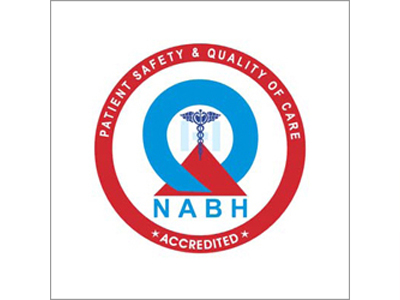L V Prasad Eye Institute (LVPEI) is recognized as one of the leading centers globally for corneal neurotization surgery. Since 2019, the institute has performed over 40 such procedures, achieving surgical success rates comparable to those of other established centers worldwide. This approach offers new hope for patients with neurotrophic keratitis; a condition traditionally managed only with palliative supportive care.
About Corneal Neurotization—An Advanced Approach in Vision Care
Corneal neurotization is a specialized microsurgical technique aimed at restoring sensation to the cornea, which has lost its natural nerve supply. When the cornea loses sensation, the eye can no longer detect irritation or injury, affecting its natural protective reflexes, such as blinking and tearing. This loss of sensation may result from congenital issues, trauma, or nerve damage following neurosurgery.
In simple terms, the procedure involves redirecting healthy sensory nerves from areas such as the forehead or leg and carefully attaching them near the cornea using microsurgery. Over several months, these transplanted nerves grow into the cornea, helping restore sensation. This recovery supports natural eye functions, such as blinking, tearing, and healing, which can improve comfort and help protect vision.
What makes the LVPEI’s corneal neurotization approach unique?
The corneal neurotization approach of the L V Prasad Eye Institute (LVPEI) stands out globally because of a combination of specialized expertise, advanced technology, and innovative clinical execution.
Multidisciplinary Expertise Under One Roof
LVPEI is among the few centers worldwide that integrate corneal specialists, neurosurgeons, oculoplastic surgeons, anesthetists, neurologists, and support staff for corneal neurotization. This collective skill set is seldom found in a single institution, enabling the seamless management of highly complex microsurgical nerve transfer procedures.
Volume and Success
LVPEI is the only institute that has performed more than 40 corneal neurotization surgeries with a high surgical success rate since 2019. These numbers and documented outcomes far exceed the global norms for this niche surgery.
Technological Edge
The institute is equipped with advanced microsurgical instruments, intraoperative nerve detectors, and high-resolution neural imaging of the cornea. However, these resources are not commonly available in most centers.
Unique Clinical Experience
LVPEI’s clinical experience covers both pediatric and adult neurotrophic keratitis—including congenital and complex acquired cases—supported by an ability to manage advanced ocular surface disorders. Such deep and broad experience is rare globally.
Training and Leadership
LVPEI’s commitment to disseminating its expertise through structured workshops, live surgeries, and interdisciplinary collaboration helps set global standards and elevate care in centers worldwide.
Curative, Not Just Palliative
Traditionally, neurotrophic keratitis was managed only with supportive (palliative) measures. LVPEI’s neurotization now offers a restorative, long-term solution, changing the paradigm from symptom management to lasting recovery.
Who Needs This Surgery?
Typical patients who require this procedure include those with:
- Post-neurosurgical nerve injuries (e.g., after tumor excision near the cranial nerves)
- Severe trauma
- Congenital corneal anesthesia (particularly relevant in populations with higher consanguinity)
- Infections such as herpes zoster (Shingles )
- Corneal anesthesia manifests as a lack of sensation, impaired blinking and healing, chronic eye dryness, and frequent injuries that can progress to blindness if left unaddressed.
Outcomes That Change Lives
We are encouraged by the positive surgical outcomes observed to date. Most cases showed notable improvements in tear film stability, ocular surface health, and corneal clarity. These improvements have made it possible to gradually reduce the use of intensive preservative-free lubricants and, in some cases, avoid tarsorrhaphy that was previously necessary. Patients have also been able to rely less frequently on surface-support therapies. Between six and 12 months after surgery, nerve regeneration in the cornea was observable through in vivo confocal microscopy, indicating successful nerve growth and reinnervation. Additionally, in some patients, optical keratoplasty was performed approximately a year after neurotization, with promising graft outcomes—an option that was previously difficult to consider in anesthetic, neurotrophic eyes.
Training and the Road Ahead
LVPEI’s hands-on workshops empower clinicians with foundational knowledge and surgical exposure. However, successful replication requires surgical expertise, a team approach, and appropriate infrastructure. Most attendees will introduce elements at their own centers, but complex cases will benefit from referrals to high-expertise institutes, such as the LVPEI.
About LVPEI
Established in 1987, with the vision,” to create excellent and equitable eye care systems that reach all those in need,” the L V Prasad Eye Institute (LVPEI), a comprehensive eye health institute, is a World Health Organization Collaborating Centre for Prevention of Blindness.
The LVPEI’s five-tier ‘Eye Health Pyramid’ model, covering all areas of the community from villages to cities, provides high-quality and comprehensive preventive, curative, and rehabilitative eye care to all. The LVPEI Eye Care Network has 310+ centers across the Indian states of Telangana, Andhra Pradesh, Odisha, and Karnataka. To date, it has offered over 24 million center-based services (2 crores 40 lakh services), with more than 50% entirely free of cost, irrespective of the complexity of care needed.
For more information,
Contact: L V Prasad Eye Institute
Phone: +91 40 6810 2272
Email: aneetha.kanukolanu@lvpei.org
Website: www.lvpei.org


